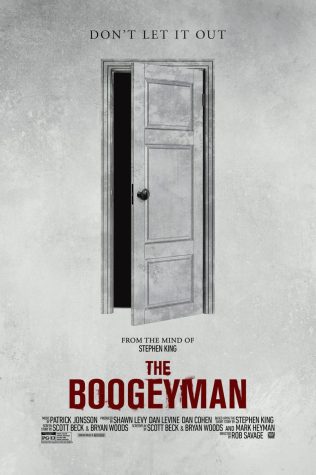Mental health checked by grounded mindset
April 17, 2019
How do conversations around the family table usually go? You might ask your parents how their day went or tell your roommate about a good joke you heard. But when do we ask each other how we really feel inside?
How often do we really see the emotional weight that each of our souls carries, or the balance that binds each of our daily experiences?
Moments like these happen few and far between, but it’s our duty to foster those exchanges. Now, more than ever, mental health has become a hot button issue — one that most people probably feel better completely avoiding.
Most communities are filled with caretakers who look after the well-being of others, but how often do we return the favor by checking in on them.
Conversations about mental health don’t have to be the duty of just a few people. Everyone can engage in meaningful and caring discussion.
If we can take the time to look out for each other’s physical conditions, why then are we scared to engage in vulnerable discussions surrounding personal emotional health.
Mental health is a tough topic to breach, but that initial trepidation is worth trekking through.
Talking about mental health problems can be difficult and sometimes the people who need help the most are afraid to open up about them.
The more those awkward conversations occur, the more normalized it becomes for those who need help to reach out for it.
Also, bringing these topics to the table allows for more discussions about preventative care.
Instead of wondering after a crisis, “Why didn’t they reach out for help,” we should be graceful in considering how much support was or was not available.
If you notice a glimmer of a frown creaking at the edge of a friend’s face, a sigh given to themselves or plans being constantly canceled — reach out.
Ask them, “Hey is everything OK? You can talk to me about anything. I’m here for you.”
It’s a hefty change to make but questioning each other about emotional stability should be a daily routine. If the task feels a bit too heavy to jump into immediately, take baby steps instead. First, seriously consider if you are attuned to the needs your own emotional compass guides you toward.
Begin by asking yourself how the day felt, not through a superficial lens, but really try to read into your sense of integrity.
How did the day resonate with your values, your sense of self?
Communicating how we feel is a skill that is not only necessary, but imperative to living a healthy lifestyle. Sure, body language can help others read into our moods, but if we can’t accurately describe how we feel about our lives to those around us, how can anyone understand what issues lie beneath the surface?
Too often, bad habits are mislabeled as pieces of someone’s identity instead of symptoms of a serious mental disconnect.
Time should be taken out of our days to properly represent our emotional well-being. Reconnecting with our values to carve out a life we want should be the goal of each our communities.
If we provide each other with a helping hand, hopefully small talk on mental health can become a communal hug we can all share.













